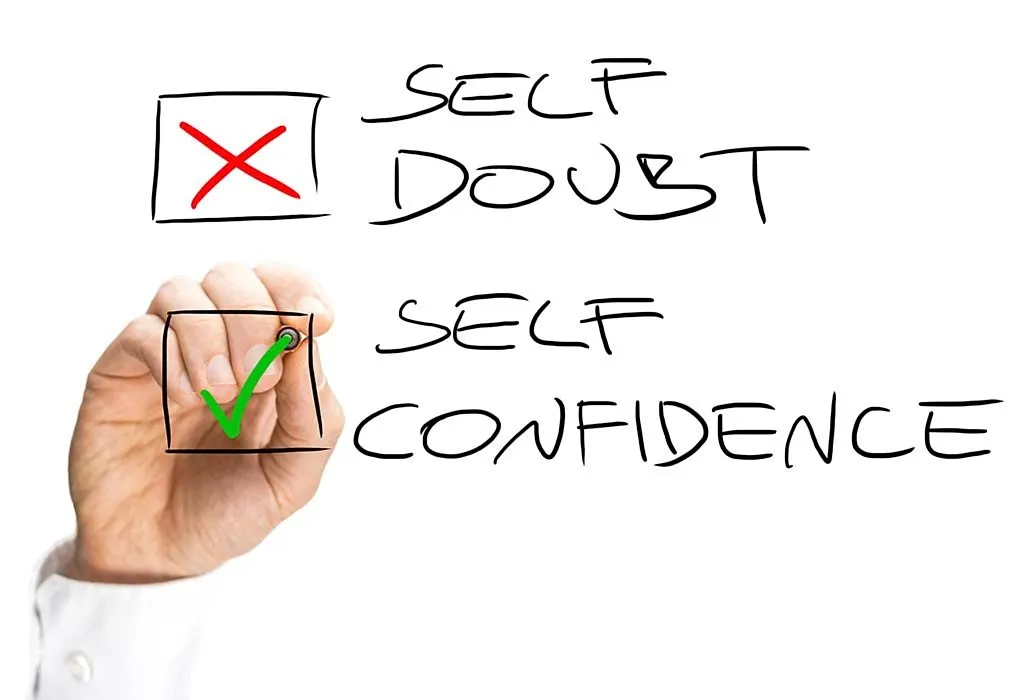Confidence and self-doubt are two sides of the same coin. Confidence is that quiet belief in your abilities, while self-doubt is the constant questioning and second-guessing that can hold you back. Whether you’re aiming for personal growth or chasing big goals, self-doubt can be a major roadblock. The good news? Confidence isn’t something you’re born with—it’s something you can build. In this article, we’ll dive into the practical strategies that can help you boost your confidence and overcome self-doubt, so you can thrive in life.
Understanding Self-Doubt: What It Is and Why It Happens
Defining Self-Doubt and Its Common Triggers
Self-doubt is that nagging feeling of uncertainty that whispers, “Am I good enough?” or “What if I fail?” It often stems from past experiences, societal expectations, or a fear of making mistakes. Life’s pressures—like the desire to meet high expectations, fear of judgment, or fear of failure—can all trigger self-doubt.
The Psychological Roots of Self-Doubt
At its core, self-doubt is linked to your self-perception. Cognitive behavioral theories suggest that self-doubt arises when your thoughts become distorted. For example, if you focus only on your failures rather than your achievements, it reinforces the belief that you’re not capable.
Common Signs of Self-Doubt in Daily Life
You might experience self-doubt through perfectionism, constant second-guessing, or avoiding challenges out of fear. When you doubt yourself, it’s easy to feel anxious, stressed, or disconnected from your goals. Recognizing these signs is the first step in addressing them.
The Importance of Confidence in Personal Growth and Success
How Confidence Influences Your Mindset and Actions
Confidence shapes the way you approach life. Confident individuals tend to take more risks, make decisions more easily, and believe in their ability to succeed. On the other hand, self-doubt often leads to hesitation and second-guessing, holding you back from taking action.
The Role of Confidence in Achieving Goals and Success
Whether you’re aiming for career advancement, personal goals, or creative pursuits, confidence plays a critical role. Confident people are more likely to step out of their comfort zones, seek opportunities, and achieve their aspirations.
The Relationship Between Self-Confidence and Self-Esteem
Self-confidence and self-esteem go hand in hand. Self-esteem is how you perceive your worth, while self-confidence is your belief in your abilities. Boosting self-confidence can strengthen self-esteem, creating a positive cycle of growth.
Steps to Build Confidence from Within
Identifying Your Strengths and Celebrating Small Wins
Confidence grows when you recognize your strengths. Start by reflecting on what you do well and the small successes you’ve achieved. Celebrating these wins, no matter how small, builds a positive foundation for confidence.
Practicing Self-Compassion and Kindness
Becoming your own biggest cheerleader helps quiet the inner critic. Self-compassion means treating yourself with kindness and understanding, even when you make mistakes. It’s about acknowledging your humanness without judgment.
Shifting Your Mindset from Negative to Positive
Negative self-talk keeps self-doubt alive. Shift your mindset by practicing affirmations, focusing on your achievements, and replacing self-critical thoughts with positive ones. You’ll start to notice a more optimistic perspective.
Overcoming Negative Self-Talk and Inner Criticism
Recognizing and Challenging Negative Thoughts
The first step in overcoming self-doubt is becoming aware of your inner dialogue. Pay attention to the thoughts that make you doubt yourself and challenge their validity. Are they really true, or are they distortions?
Replacing Self-Doubt with Empowering Beliefs
Instead of dwelling on what you can’t do, focus on what you can do. Create affirmations that reinforce your strengths, like “I am capable” or “I am enough.” This helps retrain your brain to believe in your potential.
Techniques for Silencing Your Inner Critic
Develop habits like mindfulness and meditation, which help you become more aware of negative thoughts. Journaling can also be a powerful tool to track and transform self-doubt into confidence-building reflections.
Setting and Achieving Goals to Build Confidence
The Importance of Setting Realistic Goals
Setting achievable goals gives you a sense of purpose and direction. When you succeed in reaching these goals, your confidence grows naturally. Start small and build from there.
Breaking Goals into Manageable Steps
Overwhelm can lead to self-doubt. Break down big goals into smaller, actionable tasks. Completing each step builds momentum and confidence as you progress.
Celebrating Achievements to Boost Confidence
Every win, no matter how small, is worth celebrating. Acknowledging your progress reinforces belief in your ability to keep moving forward.
Building Self-Confidence through Preparation and Practice
How Preparation Boosts Self-Belief
Feeling prepared reduces uncertainty. Whether it’s studying for a test, rehearsing for a presentation, or practicing a skill, preparation instills confidence because it reinforces your preparedness.
The Power of Practice and Repetition
Practice makes perfect—and more importantly, it builds confidence. The more you repeat tasks, the more competent you become. Each success builds trust in your abilities.
Building Confidence Through Mastering New Skills
Trying new things, even if they’re outside your comfort zone, builds confidence. Every time you master a new skill, you prove to yourself that you’re capable of growth.
Seeking Support and Building a Positive Network
Surrounding Yourself with Supportive People
Positive, encouraging people uplift you. Spend time with friends, family, or mentors who believe in your potential and offer constructive feedback.
The Importance of Mentorship and Role Models
Look to mentors or role models who inspire you. Learning from their experiences and seeking guidance can help you build confidence more quickly.
Building a Network That Encourages Personal Growth
Supportive networks provide accountability and encouragement. Connect with people who inspire you and encourage your personal development.
The Role of Body Language and Physical Presence
How Posture Impacts Confidence Levels
Your body language sends powerful signals. Standing tall, making eye contact, and using open gestures convey confidence to yourself and others.
The Significance of Non-Verbal Communication
Your body language influences how you feel and how others perceive you. A confident presence helps reduce self-doubt and increases self-assurance.
Using Physical Presence to Project Confidence
Pay attention to your non-verbal cues. When you exude confidence through your posture and demeanor, it reinforces your belief in your abilities.
Facing and Embracing Failure as a Confidence-Building Tool
How Failure Can Lead to Growth and Confidence
Failure isn’t the end—it’s a stepping stone. Each setback teaches valuable lessons that build resilience and self-assurance.
Learning from Mistakes and Setbacks
Every mistake is an opportunity to grow. Reflecting on failures helps you identify what went wrong and how to improve next time.
Building Resilience Through Failure
The ability to bounce back from failure is a key part of building long-term confidence. Embrace setbacks as part of the learning process.
Practicing Gratitude to Boost Confidence
The Connection Between Gratitude and Self-Worth
Gratitude shifts focus from what’s lacking to what you have. It fosters a positive self-image, helping to counteract self-doubt.
How Gratitude Enhances a Positive Self-Image
Acknowledging what you’re grateful for reminds you of your strengths and the good in your life, reducing negative thoughts.
Using Gratitude to Counteract Self-Doubt
Practicing gratitude helps you appreciate the present, reinforcing a sense of worth and reducing self-doubt.
Embracing Your Authentic Self to Build Confidence
Authenticity and Self-Acceptance
When you embrace who you are, confidence follows. Authenticity means letting go of the need to please others and embracing your unique qualities.
Finding Your True Voice and Values
Discover what truly matters to you and live by those values. When you act in alignment with your authentic self, confidence grows naturally.
Letting Go of Perfectionism and Societal Pressures
Striving for perfection and trying to meet unrealistic standards can lead to self-doubt. Embrace your flaws and focus on progress rather than perfection.
Mindfulness and Meditation for Overcoming Self-Doubt
The Role of Mindfulness in Self-Awareness
Mindfulness helps you become more aware of your thoughts, allowing you to observe and shift self-doubt into clarity.
Meditation Practices to Quiet Self-Doubt
Mindfulness meditation calms the mind and reduces rumination, helping you focus on the present rather than dwelling on doubts.
How Mindfulness Builds Mental Clarity and Confidence
Practicing mindfulness enhances mental clarity, which makes it easier to recognize negative thought patterns and replace them with positive ones.
Building Confidence in Social Situations
Strategies for Navigating Social Anxiety
Social confidence can be developed by facing situations gradually and preparing in advance. Practice, self-awareness, and acceptance are key.
Developing Confidence in Public Speaking
Public speaking can be nerve-wracking, but with preparation and practice, you’ll gain confidence in presenting to others.
Building Connections and Engaging Confidently
Engaging with others and maintaining open body language helps reduce anxiety and build stronger connections.
Long-Term Confidence Building Strategies
Maintaining Confidence Through Consistency
Confidence isn’t a one-time achievement—it’s built and maintained through consistent effort and practice.
How Reflection and Self-Assessment Sustain Confidence
Regularly reflecting on your progress and accomplishments keeps self-doubt in check and reinforces a growth mindset.
Setting New Goals to Keep Building Confidence
As you reach goals, set new ones to continue challenging yourself and reinforcing your confidence.
Conclusion
Building confidence and overcoming self-doubt is a journey that requires patience, persistence, and practice. The strategies we’ve discussed—ranging from setting achievable goals to cultivating gratitude—can help you reshape your mindset and boost your self-belief. Remember, confidence isn’t something you either have or don’t have; it’s a skill that you can develop with time. By embracing your strengths, facing challenges head-on, and shifting your mindset, you’ll create a foundation for lasting confidence and personal growth.
FAQs
- How long does it take to build confidence?
Building confidence is a gradual process and can vary from person to person, but consistent practice over weeks or months typically yields results. - What role does self-compassion play in overcoming self-doubt?
Self-compassion helps you treat yourself kindly and reduces harsh self-criticism, making it easier to counteract self-doubt. - Can meditation really help with self-doubt?
Yes! Meditation enhances self-awareness and helps quiet negative thoughts, promoting clarity and confidence. - How can I overcome fear of failure and boost confidence?
Embracing failure as a learning opportunity builds resilience, helping you move forward without the fear of failure. - What are the best ways to build confidence in social situations?
Practice, preparation, and engaging in social activities gradually can help reduce anxiety and boost social confidence.




